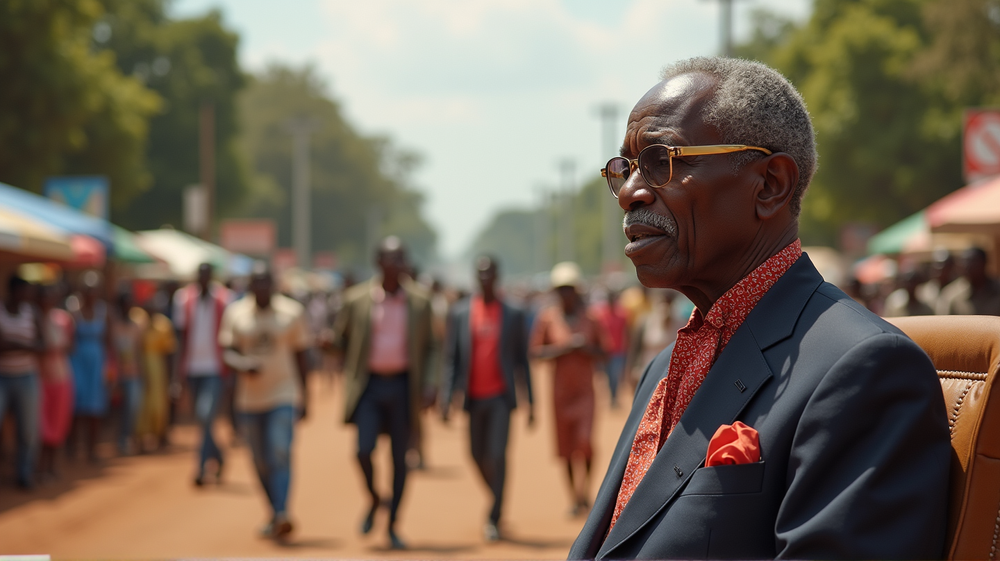The Struggle for Credibility
In a dramatic election victory, Cameroon’s 92-year-old Paul Biya was declared the winner once more by the country’s top court. However, this triumphant announcement was marred by violent protests that claimed four lives. As stated by local officials, opposition supporters took to the streets demanding transparency and authentic results in a country divided by its aging leadership and ambitious youth.
A Long-standing Legacy
President Paul Biya, in office since 1982, cast his vote at the Government Bilingual primary school Bastos in Yaounde. The Constitutional Council confirmed his re-election, which seems poised to extend his unparalleled reign. According to AP News, Biya secured 53.66% of the votes while his closest contender, Issa Tchiroma Bakary, received 35.19%.
Youthful Dissatisfaction
Voter turnout of 57.7% signifies both political engagement and disillusionment among Cameroonians. Many young voters, like the 27-year-old trader Oumarou Bouba, voiced their frustrations: “I voted for Tchiroma because I want change,” a sentiment echoed across a nation tired of perpetual rule by the old guard.
Protests and Reactions
The days following the election saw growing unrest. In cities like Douala, security forces confronted protestors with tear gas as tensions boiled over Tchiroma’s claims of unjust elections, darkening hopes for a peaceful transition. Yet, supporters of Biya argue that his experience remains indispensable, noting the country’s ongoing infrastructural projects as evidence of his enduring contributions.
A Nation at Crossroads
Cameroon faces numerous challenges: economic disparity, corruption, and the ever-present threat of Boko Haram. With more than half of the population under 35, the country stands at a generational crossroads. Either it will maintain the status quo or move towards reformative change. As echoed by Emile Sunjo, a senior lecturer at the University of Buea, Cameroon’s recent election might be a missed opportunity for evolution and unity.
The Uncertain Future
With Biya’s administration continuing, questions loom about the nation’s future and stability. Critics speculate whether changes to leadership can be achieved through democratic means, or if options like secession or other political movements could shape a new direction for Cameroon.
In conclusion, the re-election of the world’s oldest president in a vital nation such as Cameroon not only reflects its unique political landscape but also its pressing need for addressing the grievances of its younger, dynamic populace. These events emphasize the delicate balance between tradition and progress, a tale of leadership that perhaps the world is watching more closely than ever.












